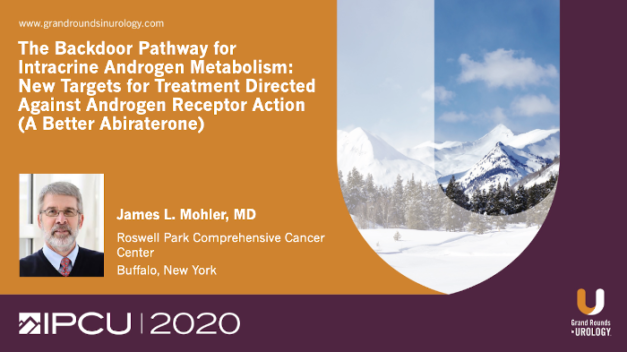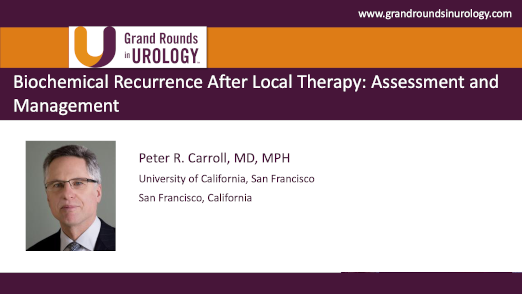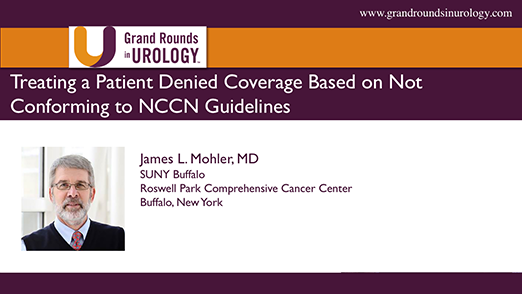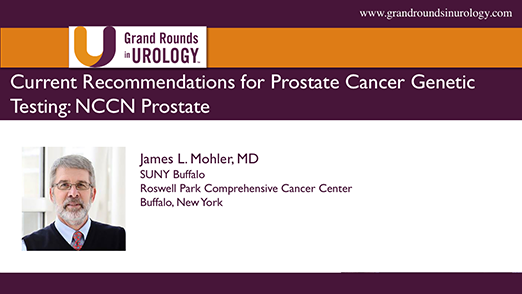A Better Abiraterone: The Backdoor Pathway for Intracrine Androgen Metabolism
James L. Mohler, MD, Associate Director and Senior Vice President for Translational Research and Professor of Oncology at Roswell Park Comprehensive Cancer Center in Buffalo, New York, discusses the cause of and potential solutions to androgen receptor expression in castration-recurrent prostate cancer. He explains that prostate cancer tissue in a patient with castration-recurrent disease actually has greater levels of testosterone than benign prostate tissue and that castration-resistant prostate cancer relies on a backdoor pathway of manufacturing testosterone by which dihydrotestosterone (DHT) is made from androstanediol. Abiraterone is intended to inhibit CYP17A1 and therefore prevent the manufacture of DHT, but Dr. Mohler suggests that abiraterone inhibits CYP17A1 that is too far from DHT synthesis to achieve long term response by inhibition. He then discusses current research about a promising drug that targets the catalytic domain shared by the five 3α-oxidoreductases associated with DHT production.
Read More



